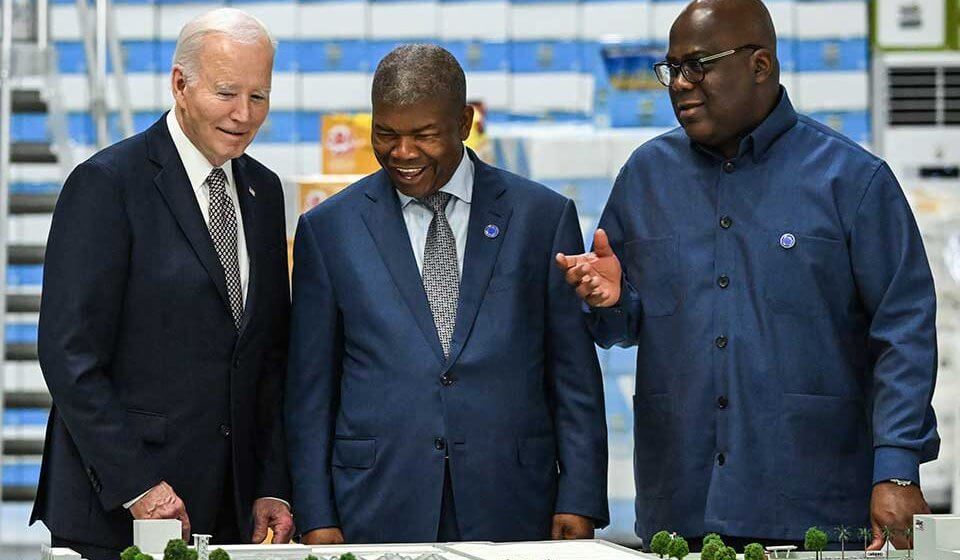|
LISTEN TO THIS THE AFRICANA VOICE ARTICLE NOW
Getting your Trinity Audio player ready...
|
President Joe Biden Monday December 2, embarked on a historic visit to Angola, marking his first trip to sub-Saharan Africa as the leader of the United States.
The visit, occurring just weeks before his presidency ends, underscores a pivotal shift in US-Africa relations as Donald Trump prepares to succeed him. For Angola, a country once heavily aligned with China and Russia, Biden’s visit signals a significant turn in its diplomatic and economic trajectory.
Angola’s emergence as a key US ally in Africa is no accident. After gaining independence from Portugal in 1975, the oil-rich nation became a Cold War battleground, leaning toward the Soviet Union and later China. However, since taking office in 2017, Angolan President João Lourenço has recalibrated the country’s foreign policy, prioritizing pragmatic, non-aligned relationships over ideological allegiances.
This realignment has paved the way for closer ties with the United States. Biden’s visit solidifies this partnership, making him the first US president to set foot in Angola. Analysts view the trip as a calculated effort to counter China’s dominance in Africa through trade, infrastructure investment, and economic cooperation.
At the heart of Biden’s visit is the Lobito Corridor, an ambitious infrastructure initiative designed to transform regional trade and resource transportation. Spanning 1,344 kilometers (835 miles), the railway project will connect cobalt, lithium, and copper mines in the Democratic Republic of Congo and Zambia to Angola’s Lobito port on the Atlantic Ocean. These critical minerals are essential for producing batteries used in electric vehicles, placing the project at the forefront of the global green energy transition.
The corridor represents a collaborative effort involving Angola, Zambia, DR Congo, the US, other G7 nations, and private investors. Helaina Matza, acting coordinator for the project at the US Department of State, highlighted the collective commitment to mobilizing $600 billion for global infrastructure investments through 2027.
Biden’s administration has framed the Lobito Corridor as a direct alternative to China’s Belt and Road Initiative, which has been criticized for saddling African countries with unsustainable debt. However, unlike previous projects, the railway will be open to both Western and Chinese firms, raising questions about its long-term strategic advantage for the US.
While the project promises significant economic benefits, challenges remain. The Democratic Republic of Congo currently dominates the global supply of cobalt, exporting most of it as raw material. Efforts by African countries to promote local processing could alter the economic calculus for the corridor, particularly as demand for cobalt and lithium fluctuates.
Angolan President Lourenço, however, remains optimistic. Speaking ahead of Biden’s visit, he defended the investment, emphasizing that resource exports now benefit African nations rather than exploit them. “Unlike the colonial era, we are now exporting on our terms,” he said.
Following nearly three decades of civil war, which ended in 2002, Angola has prioritized rebuilding its infrastructure. The Lobito Corridor’s railway, which suffered extensive damage during the conflict, has been a focal point of these efforts. Initially refurbished with Chinese funding under controversial oil-for-loan deals, the railway now represents a fresh opportunity for Angola to redefine its international partnerships.
In 2023, US-Angola trade reached $1.77 billion, making Angola the fourth-largest US trading partner in sub-Saharan Africa. Beyond oil, Angola’s wealth in minerals such as copper and lithium positions it as a vital player in the global shift toward renewable energy.











LEAVE A COMMENT
You must be logged in to post a comment.